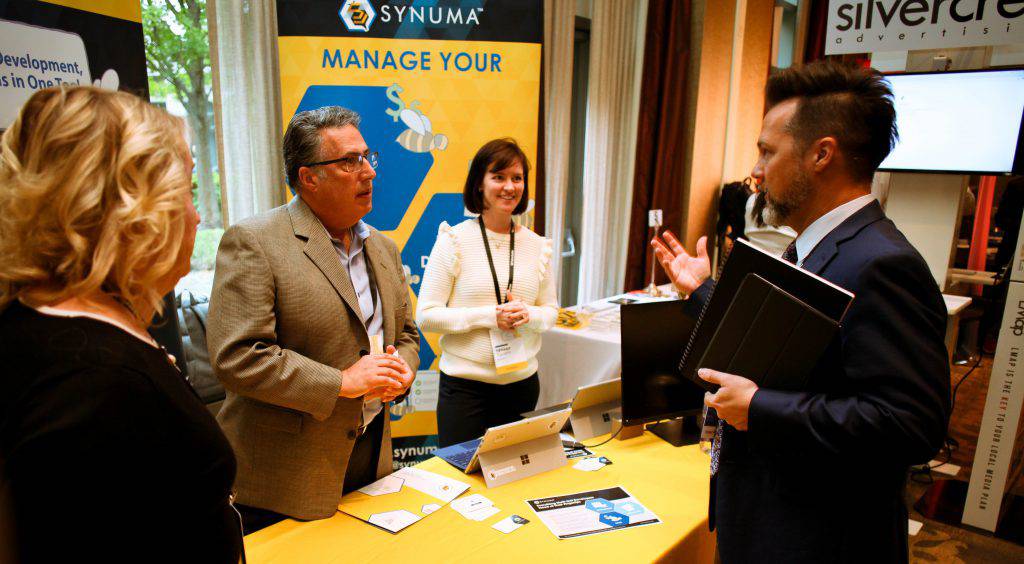If you’re a franchisor looking to incorporate machine learning into your franchise’s operations, look no further than Synuma. We recently had a chance to speak with Chris Corbin, Director of Data Engineering at ClearlyAgile, Inc., and the guy behind Synuma’s machine learning developments. Corbin walked us through some of the basics and explained what these developments mean for franchisors.
According to Corbin, there are two layers to artificial intelligence (AI) and machine learning within the franchise industry. First, franchisors want to know whether or not a person will buy a franchise. Secondly, if they’ve bought one, how successful will they be at running that franchise? “We’re going to be able to train an AI engine to be able to evaluate an incoming lead and to make a prediction in terms of the likelihood that lead will ultimately purchase a franchise, and then how successful they will be at running the franchise,” says Corbin.
Essentially, machine learning can answer two important questions:
-
Will the lead purchase your franchise?
-
If they purchase, how well can they run the franchise?
Understanding the Basics
To help explain the machine learning process, Corbin referenced a Stack Exchange question that he has found particularly useful for better understanding some of the lingo involved in this highly complex topic. In summary, the field of AI/machine learning has 4 major disciplines, each of which builds upon the last one in a sort of hierarchy:
-
Statistics: Uses numbers to quantify data
-
Data Mining: Uses statistics and programming to create patterns that explain significant phenomena in the data
-
Machine learning: Uses data mining and other algorithms to make predictions and models out of the available data
-
Artificial Intelligence: Uses the outputs of machine learning models to reason and behave intelligently as if in the real world. It predicts the impact of various actions on these real-world models and then picks the scenarios that yield the best results.
Corbin also clarifies that machine learning can be either supervised or unsupervised.
-
Supervised: As Corbin describes it,”Supervised machine learning means that you’re going to train your algorithm on a data set that has historical labels.” The labels are what you are trying to predict. A label is assigned to the lead whether they bought a franchise or not.
-
Unsupervised: Here, you provide a data set and the system can learn about the data without having labels presented to it using data association algorithms. Corbin explains using market basket analysis as an example. If someone goes to the store to buy something (like peanut butter), retailers want to know what else that person is likely to buy (like jelly and bread). Synuma’s system is able to make those correlations by identifying which attributes make someone qualified or unqualified.
How Synuma Uses Machine Learning to Qualify Leads
As Corbin explains,”What we’d like to ultimately get back is a percentage – something like, ‘We think this person is 75% likely to buy a franchise and run it successfully. However predicting in a quantitative manner like this will take a few iterations, so our first goal is to qualify leads along a standard academic scale.” To train Synuma’s system to make predictive analyses, two critical data sets must be available:
1. Prospects who, at one point, were leads and went on to buy a franchise.

Data from these people can show how successful they were at running a franchise. Synuma, through machine learning, takes these metrics and determines their success rate. To qualify the leads, the system assigns them grades of A, B, C, D and F, much like a typical academic grading scale.”A” is for the best of the best franchisees.”B” goes to a franchisee who was decent at running the business.”C” is for someone who managed to buy a franchise but did not necessarily run it well.
2. Prospects who never bought a franchise.
This category includes two types of leads. Those that did not buy, because they weren’t interested, are known as lost leads and are graded”F”. Then, there are those that did not purchase because they were disqualified by a franchisor for some reason. This category is graded”D”.
With these two sets of data, Synuma trains AI to quickly analyze a new lead. When a potential buyer enters the system, they are effectively graded and compared to past franchisees to evaluate their viability. Over time, Synuma is able to gain other insights about leads.
“If we say that someone gets a grade of an A, they’re really likely to buy a franchise. We want to give them [franchisors] the ability to drill in and understand why,” says Corbin. He continues, “Maybe they have x dollars in liquid cash, maybe they have y dollars of net worth. We’ll narrow them down to those types of attributes so we can say these attributes are strong predictors of whether they’ll buy and how successful they’ll be.”
The system will dive into the attributes that qualify a lead. Then it puts emphasis on key indicators to improve the standard score to a percentage value. In simple terms, you will be in a position to qualify leads automatically. With lead-qualifying AI, you can save time and money since the tool focuses on what really matters.
The Importance of AI for Franchisors
As a franchisor, imagine being able to tell the likelihood that a particular lead will buy your franchise. Says Corbin, “This all goes back to minimizing their cost and minimizing their investment that it takes to convert a franchise. Anything they can do to minimize the investment that it takes to get a lead converted to a franchisee, it’s just helping their bottom line.”
Why waste your time interviewing prospects that you likely won’t convert? Synuma’s machine learning system is focused on making predictions and helping franchisors find better, more qualified leads. Start making the lead-qualification process quicker and cheaper with fewer human resources. Contact us today!













